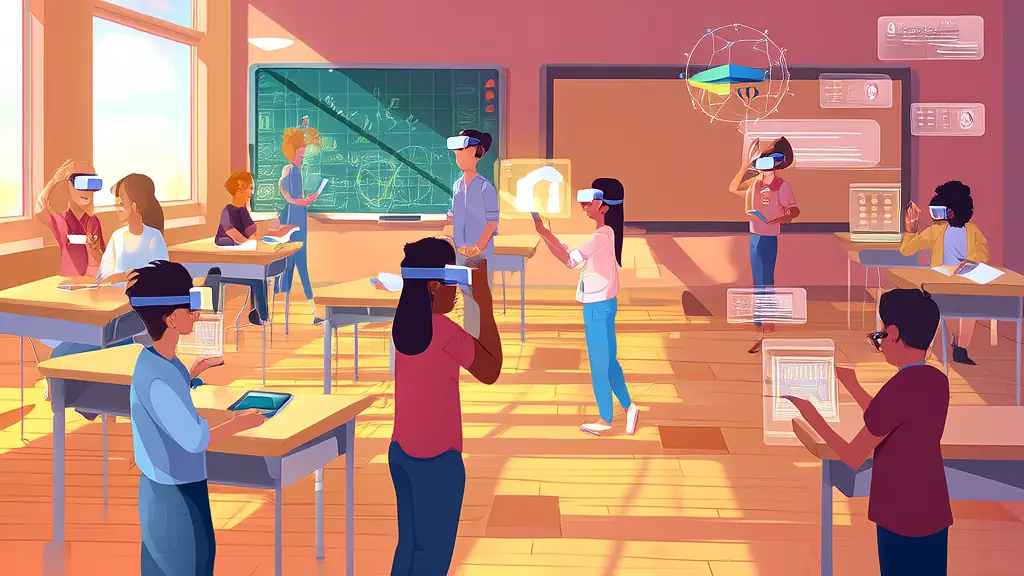
Empowering the Next Generation: Navigating K12 Education in 2025
As we stand on the cusp of a new era in education, it's clear that the landscape of K12 schooling is rapidly evolving. From innovative teaching methodologies to groundbreaking educational technologies, the tools and approaches available to educators and parents today are more advanced and effective than ever before. In this blog post, we'll explore the latest trends and insights in K12 education, offering practical tips and success stories to inspire and guide both parents and teachers.
The Power of Personalized Learning
One of the most significant shifts in K12 education is the move towards personalized learning. This approach recognizes that every student has unique needs, strengths, and interests. By tailoring instruction to meet these individual differences, educators can enhance engagement and improve academic outcomes. For example, Summit Public Schools have implemented a personalized learning model that uses data to track student progress and adjust instruction accordingly. This method has been shown to increase graduation rates and college readiness.
Actionable Advice: Teachers can start by using formative assessments to identify each student's learning gaps and strengths. Parents can support this by discussing their child's interests and challenges with teachers and encouraging self-directed learning at home.
Child Development Insights and Research
Recent research in child development has provided valuable insights into how children learn and grow. For instance, studies have shown that play-based learning is highly effective for young children, as it fosters creativity, problem-solving skills, and social-emotional development. The National Association for the Education of Young Children (NAEYC) emphasizes the importance of play in early childhood education.
Actionable Advice: Teachers can incorporate more play-based activities into their lesson plans, such as role-playing, puzzles, and hands-on experiments. Parents can create a supportive environment at home by providing age-appropriate toys and engaging in playtime with their children.
Educational Technology Trends
Technology continues to play a pivotal role in K12 education, with new tools and platforms emerging to enhance the learning experience. One notable trend is the use of adaptive learning software, which adjusts the difficulty of content based on a student's performance. Platforms like DreamBox Learning offer personalized math lessons that adapt to each student's pace and level, making learning more engaging and effective.
Another exciting development is the integration of virtual and augmented reality (VR/AR) in the classroom. These technologies provide immersive experiences that can bring historical events, scientific concepts, and literary worlds to life. For example, Google Expeditions allows students to take virtual field trips to places around the world, enhancing their understanding and retention of information.
Actionable Advice: Teachers should explore and integrate these technologies into their curriculum, ensuring they align with learning objectives. Parents can stay informed about the tech tools used in their child's school and encourage their use at home when appropriate.
Success Stories and Case Studies
Real-world examples of successful K12 education initiatives can provide inspiration and guidance. For instance, the New Visions for Public Schools in New York City has transformed underperforming schools through a comprehensive approach that includes data-driven instruction, professional development for teachers, and community partnerships. This initiative has led to significant improvements in student achievement and graduation rates.
In another case, the AltSchool network has pioneered a micro-school model that combines small class sizes, personalized learning, and cutting-edge technology. This approach has been particularly effective in fostering a collaborative and supportive learning environment, with students showing remarkable growth in both academic and social-emotional areas.
Actionable Advice: Teachers and parents can learn from these success stories by adopting similar strategies and seeking out local or national programs that align with their goals. Collaboration and continuous improvement are key to achieving positive outcomes.
Conclusion: A Call to Action
The future of K12 education is bright, with a wealth of innovative methodologies, research insights, and technological advancements at our disposal. By embracing these opportunities, educators and parents can create a more engaging, effective, and inclusive learning environment for all students. Let's work together to empower the next generation and ensure they have the skills and knowledge they need to thrive in an ever-changing world.
Stay curious, stay engaged, and let's continue to push the boundaries of what's possible in K12 education.